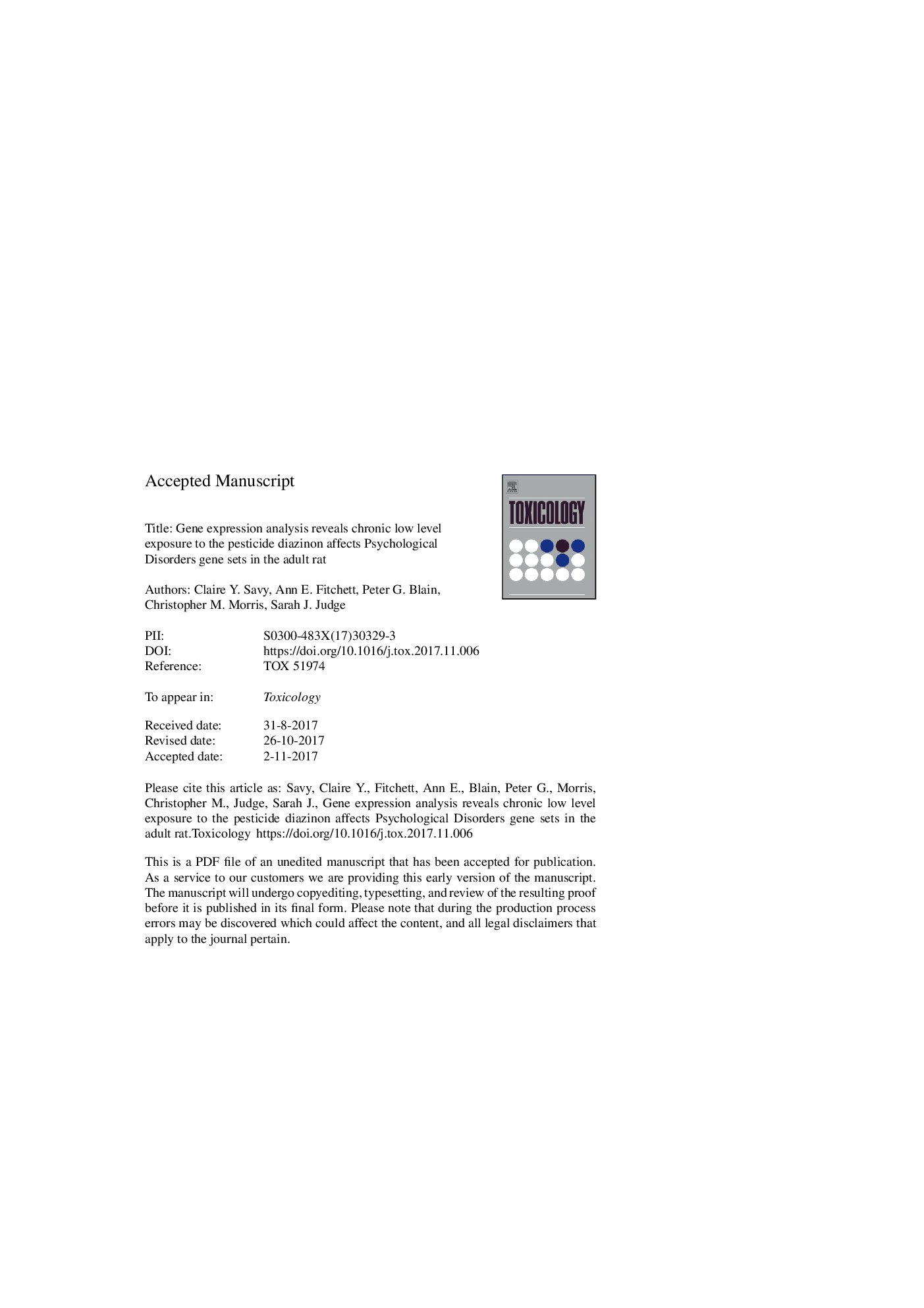| Article ID | Journal | Published Year | Pages | File Type |
|---|---|---|---|---|
| 8552918 | Toxicology | 2018 | 29 Pages |
Abstract
Chronic low level exposure to organophosphate (OPs) pesticides in adulthood has been linked to adverse neurobehavioural deficits and psychological disorder symptoms, although this remains a contentious issue. The OP-induced biological changes that could underlie these effects are unclear. We assessed gene expression changes following chronic low level exposure to diazinon, a pesticide with a high dietary exposure risk. Adult male rats were orally exposed to diazinon (0, 1, 2 mg/kg, 5 days a week for 12 weeks). After 4 weeks, marble burying behaviour was lower in diazinon exposed rats than vehicle exposed rats; this difference persisted for 8 weeks. Chronic diazinon exposure did not significantly inhibit acetylcholinesterase activity, the primary mechanism of action of high level OPs. Affymetrix GeneChip® HT RG-230 PM Arrays were used for gene profiling followed by Ingenuity Pathway analysis. In the hippocampus, the most significant gene expression changes caused by OP exposure were associated with Psychological Disorders, and Cell-To-Cell Signalling and Interaction functions. Genes encoding the AMPA3 glutamate receptor, glutaminase, dopamine transporter and tyrosine hydroxylase were up-regulated, whereas the gene encoding the GABAB1 receptor was down-regulated. In the dorsal raphe nucleus, genes associated with development and the Psychological Disorders function were significantly affected, including the up-regulation of the gene encoding the α1b-adrenoceptor, the major driver of serotoninergic (5-HT) neuronal activity. These data indicate that chronic exposure to diazinon in adulthood, below the threshold to inhibit acetylcholinesterase, stimulates glutamatergic, dopaminergic and serotonergic synaptic transmission which may underlie adverse neurological outcomes.
Related Topics
Life Sciences
Environmental Science
Health, Toxicology and Mutagenesis
Authors
Claire Y. Savy, Ann E. Fitchett, Peter G. Blain, Christopher M. Morris, Sarah J. Judge,
